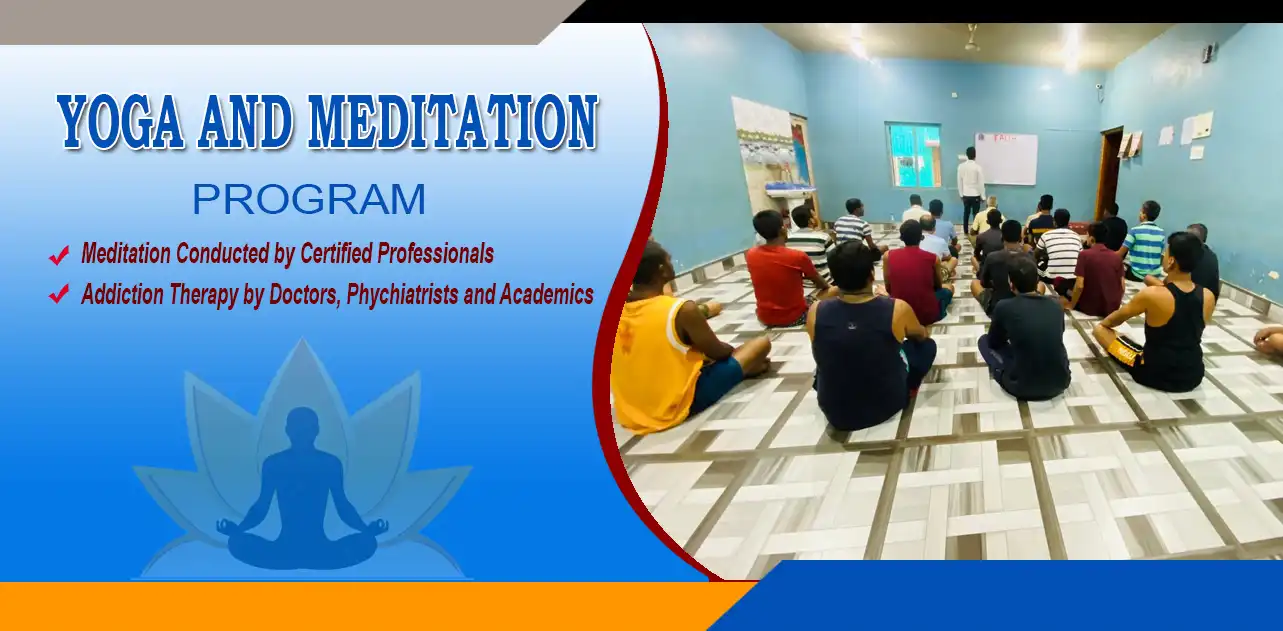-
Plot No. 4608, Gadakan, Mancheswar,
BBSR – 751017 -
Call Us 24/7
+91-77500 05999 - Mon - sun: 9:00am - 6:00pm
Yoga & Meditation
Faith De Addiction Center Yoga and Meditation program in Bhubaneswar
Yoga and Meditation are integral to a rehabilitation treatment program. This powerful combo can assist in overcoming alcohol and drug addiction, offering preventive, curative and promotive aspects when it comes to mental health. Asanas can help with physical issues while meditation and breathing exercises can provide insight into addiction and mental peace.
Benefits of Yoga and Meditation in Addiction Recovery
Faith Drug & Deaddiction center has developed an exceptional module of yoga and meditation conducted by certified professionals. The residents have the opportunity to practice asanaas and pranayama (breathing exercise) under expert guidance to help them relax and promote wellbeing.
Additionally, special meditation techniques for those with alcohol and drug problems are also administered by the professionals. This assists individuals in managing their emotions and thoughts correctly.
The recovery from addiction can be helped effectively with yoga and meditation. Yoga combines physical activity with mindfulness. People who engage in moderate to vigorous physical exercise while combining mind and body exercises can achieve sobriety more quickly. It also lowers anxiety and despair, which are the main indicator of replace in drug addiction.
Benefits of Yoga and Meditation for Alcohol and Drug Addiction Treatment
Yoga practice can prove to be a beneficial approach for individuals with addictions. It enhance blood circulation, posture, energy and suppleness, while relieving pain throughout the body. In addition, it increases digestion, lung and cardiac health, reduces the risk of diabetes and positively affects brain activity. These changes reduces the chances of withdrawal symptoms and enable addicts to cope more effectively with them. Furthermore, yoga can also help in improving breath control, decreasing stress levels, balancing hormones and reducing aggressive behaviour. Evidence from various studies testimony to these advantages.
Meditation is widely accepted as an essential element of addiction therapy by Doctors, Phychiatrists and Academics alike. This practices entails sitting comfortably with eyes closed and repeating one word or letter, gradually. Research indicates that devoting between 10 to 20 minutes to meditation daily can be effective in helping alcohol and tobacco addicts break their addictions quickly and maintain abstinence for a considerable length of time. A number of other ailments and disorders have also been found to benefit from the practice; even those who are healthy can employ it to lead a life full of happiness.

